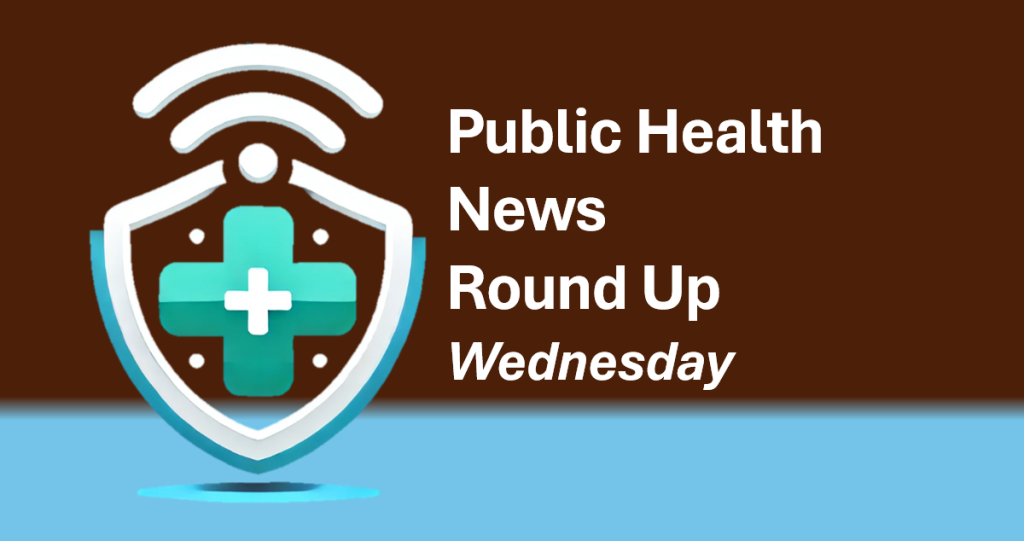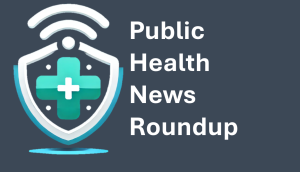
Public Health News Round Up, April 2, 2025
In case you missed the massacre yesterday, here’s the 411. Help us keep the lights on by subscribing to our weekly science newsletter. It’s free. But if you want to pay for something, we’ve got our article feed, too!)
RFK Jr. Launches Bloodbath at Health Department in Mass Layoffs
Amid sweeping political upheavals, major shake-ups at the federal level are causing profound disruptions in public health and social services. Trump’s drastic actions—like slashing workers’ rights at the Health and Human Services Department and gutting COVID-19 aid—are compounded by Elon Musk’s tumultuous effect on government spending and infrastructure. Meanwhile, the unjust deportation of Kilmer Armado Abrego Garcia highlights systemic flaws and potential human rights violations, underscoring Trump’s administration’s aggressive approach, marked by unprecedented executive actions and the questionable revocation of federal grants, which could disproportionately affect vulnerable communities.
RFK Jr. has suggested vaccines caused 1918 Spanish flu pandemic at least twice
Robert F. Kennedy Jr. has made controversial statements suggesting a link between vaccine research and the 1918 influenza pandemic, a theory debunked by scientists who attribute the pandemic to the H1N1 influenza virus and subsequent bacterial pneumonia. Despite Kennedy citing “strong” evidence, his claims align with refuted conspiracy theories rather than established scientific facts, highlighting ongoing challenges in addressing misinformation about vaccines and public health.
Vaccination Slumps and Research Cuts Threaten Long-Term Public Health
The rise in vaccine-preventable diseases like measles and pertussis in the U.S. is largely due to declining vaccination rates and insufficient federal advocacy, experts warn. Without strong public health leadership and efforts to rebuild trust and vaccine confidence, these short-term spikes could devolve into long-term endemic threats, undermining decades of public health victories.
Why Some Doctors Are Pushing to End Routine Drug Testing During Childbirth
This article highlights the shift in hospital policies across the U.S. to reduce routine drug testing of newborns, which often disproportionately affected low-income and minority families without improving medical care. Led by doctors like Dr. Sharon Ostfeld-Johns, the movement emphasizes doing drug tests only for genuine medical reasons, fostering trust between healthcare providers and patients, and addressing systemic biases in the reporting process to child welfare authorities.
Medicaid cuts could hurt older adults who rely on home care, nursing homes
Proposed federal Medicaid cuts could drastically impact older adults and vulnerable populations who rely on essential services like home care and nursing homes, which are not typically covered by Medicare or private insurance. Such cuts might compel states to slash health benefits or tighten eligibility, likely leading to workforce shortages and diminished care quality, ultimately affecting the broader healthcare system and community.
A Chapel Hill Lab Faces New Threats Five Years After Covid-19
Ralph Baric’s lab at UNC-Chapel Hill, a key player in developing COVID-19 treatments and vaccines, now finds itself embroiled in controversy and scrutiny over its role in coronavirus research and gain-of-function studies, amid policy debates that could drastically impact U.S. scientific research funding and preparedness for future pandemics. With changes in federal research funding under the Trump administration and worldwide geopolitical tensions, the future of Baric’s work and North Carolina’s biomedical industry hang in the balance, potentially affecting global pandemic readiness.
RFK Jr. must reform CDC to fight killer hospital fungus
The spread of the deadly, drug-resistant fungus Candida auris across U.S. hospitals highlights a series of critical failures by the Centers for Disease Control and Prevention, including their lack of transparency and outdated infection-control guidance, which critics argue undermines effective disease management and puts public safety at risk. Addressing this public health emergency requires prioritizing transparency, embracing modern technologies, and refocusing the CDC’s efforts on combating infectious diseases.

